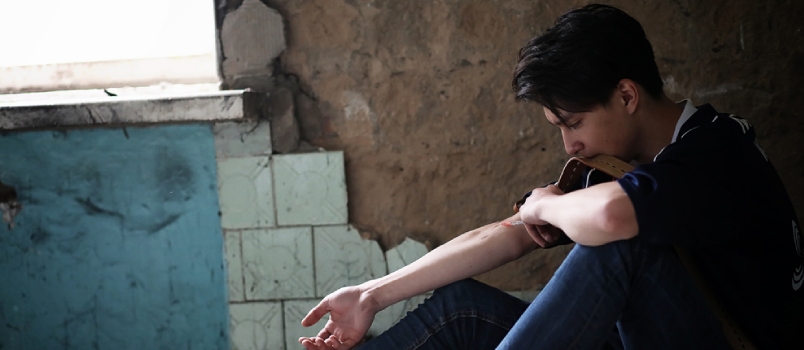4 Signs of a Teen’s Drug Use and How Parents Can Help

Heal & Grow Daily for a Happier Relationship
Subscribe FREEKey Takeaways
Marriage.com AI Quick Summary
Teenagers are at that age when they love to experiment, which makes them easily impressionable. They’re vulnerable to peer pressure, and they may find themselves doing activities they initially planned to avoid. This includes substance use.
Drug use and addiction are two different things, and parents dealing with drug-addicted teens must recognize the former to prevent the latter. Teenage substance abuse will have long-term effects since a teenager’s brains and bodies are still developing.
But, how to tell if a child has been exposed to drugs?
Parents must have the knowledge to see the issue and address it sooner rather than later. Be familiar with the recognizable signs of teen drug use, and then take action and seek the necessary help.
Also watch:
Here are 4 signs and symptoms of drug use in teenagers followed by some help for parents of drug addicts:
1. Poor hygiene and diminished personal appearance
Teenage drug addictions usually cause them to live in poor hygiene conditions. They’ll have bloodshot eyes, swollen faces, and they may have sores around the mouth. They don’t prioritize their appearance and would rather get high.
A significant change in a teenager’s hygienic habits is one of the easiest signs to recognize substance abuse. They may look messy all the time, their clothes reek of drugs, and their breath smells unusual.
What concerned adults can do aside from discouraging their drug use is to nurture their health.
Ensure that they take proper hygienic measures like taking a bath and brushing their teeth. Give a new soap that smells nice and a shampoo that removes toxins from the hair. Getting new products may persuade them to use the items and improve their physical appearance.
2. Unusually secretive behavior

They won’t make their activities known, and they will lie to everyone to cover their tracks. Teenagers will keep things from their parents and guardians to hide the fact that they are using drugs.
It may be difficult to know the exact reason for their behavior change, It maybe something else that isn’t drug abuse, like mental illness or a personal problem.
Unusually peculiar behavior may not be an immediate sign of drug use unless combined with other signs of substance abuse.
Parents should foster a good relationship with their children so they will feel comfortable talking about difficult topics.
They should let their teenagers know that they can help them deal with their drug-use problem. Most of all, they should be supportive of getting them the medical help that they need.
3. Poor academic performance
Everyone gets bad grades, but if the teenager normally performs well in school, it may indicate drug use.
Maybe they don’t pay attention to their homework anymore, or they zone out during class hours. It’s also a possibility that they skip classes and don’t attend classes altogether.
Poor academic performance may be attributed to drug use because drugs affect attention span and ability to learn. Drugs also increase the risk of dropping out of school. Adults should address the setback before it gets out of hand.
Helping them with their studies will only be a temporary solution because their mental capacity is still affected.
To help teenagers with their bad grades, the root of the problem must be addressed first—substance use. It will continue to be a major negative influence in their lives if it’s not handled.
4. Rapid weight loss or gain
A rapid change in weight is always a cause for concern.
Drug use can lead to increased appetite, but that may not necessarily lead to gaining weight. Keep an eye on teenagers because drug use makes them crave for food more frequently than is usual.
The increase in food consumption and a quick weight shift are good warning signs of substance abuse. Still, drugs may also make them lose weight quickly despite the increased appetite.
Parents can consult nutritionists for a personalized diet plan for the teenager. Prepare these meals, and ensure that the teenager sticks to the diet plan. Monitor what they eat, encourage them to be more physically active, and help them quit drugs.
Communicate well, and respond appropriately
How to handle a drug addict child?
Adults must be straightforward in asking teenagers if they have been dabbling with substance use. The tone should not be that of hostility, but of compassion and concern. Overreaction will just encourage dishonesty, so guide them and seek help for their drug use.
As parents, you want your kids to grow healthy and realize their potential.
Your ardent hope is for them to kick this habit as soon as possible before they develop a dependence on the substance and ruin their future.
It may be a few years from now and the practice may be obsolete by then, but drug testing in the company setting is always a possibility. You can look into this guide to give you a head start on the intricacies of marijuana and drug testing.
 Tips
Tips
Write your tip or submit a video tip
All tips are reviewed before the publishing.
Share this article on
Related Articles
Recent Articles
Related Quizzes
Heal & Grow Daily for a Happier, Healthier Relationship
Subscribe FREE on YouTube We'd love your feedback!
We'd love your feedback!
 Expert Q&A
Expert Q&A
Ask your question related to this topic & get the support you deserve from experts.

 Reviewed by
Reviewed by
















 Thanks for your feedback!
Thanks for your feedback!